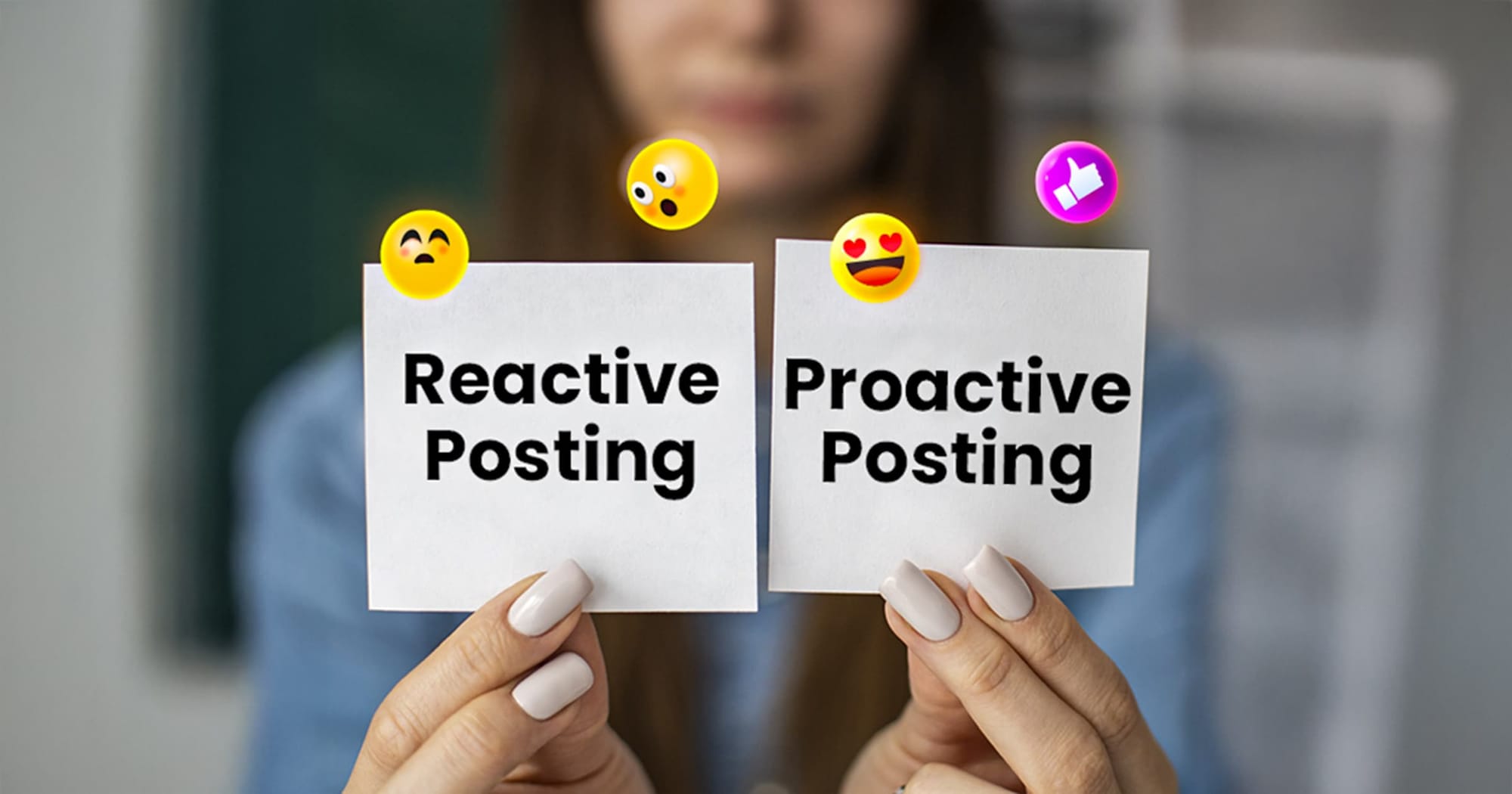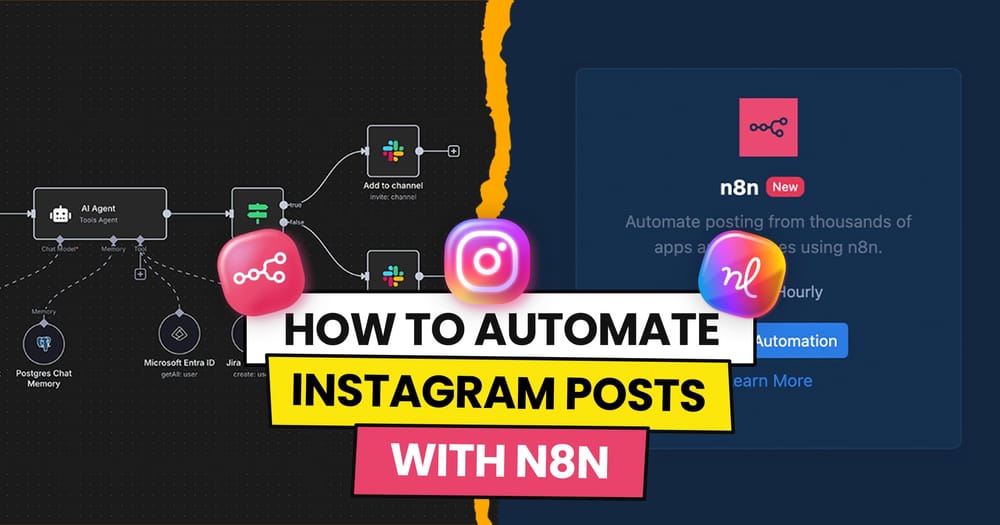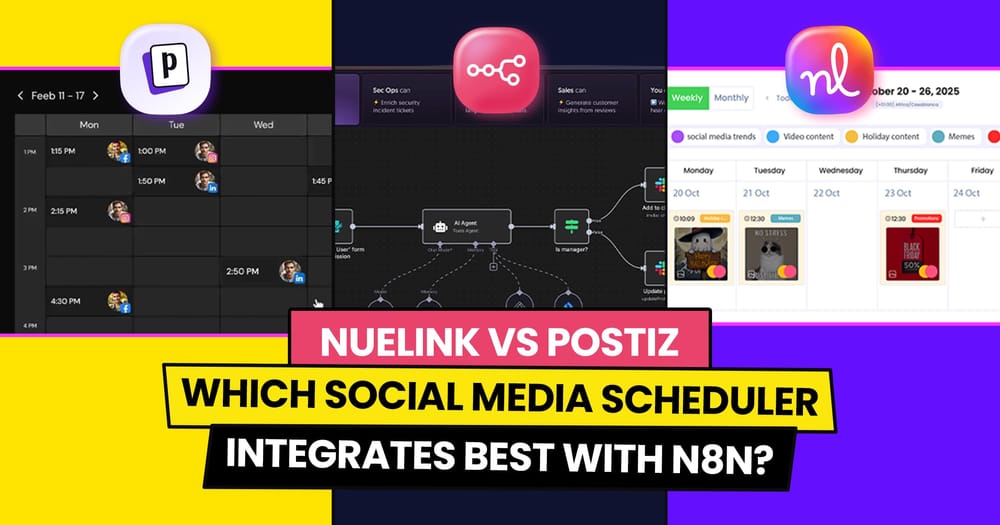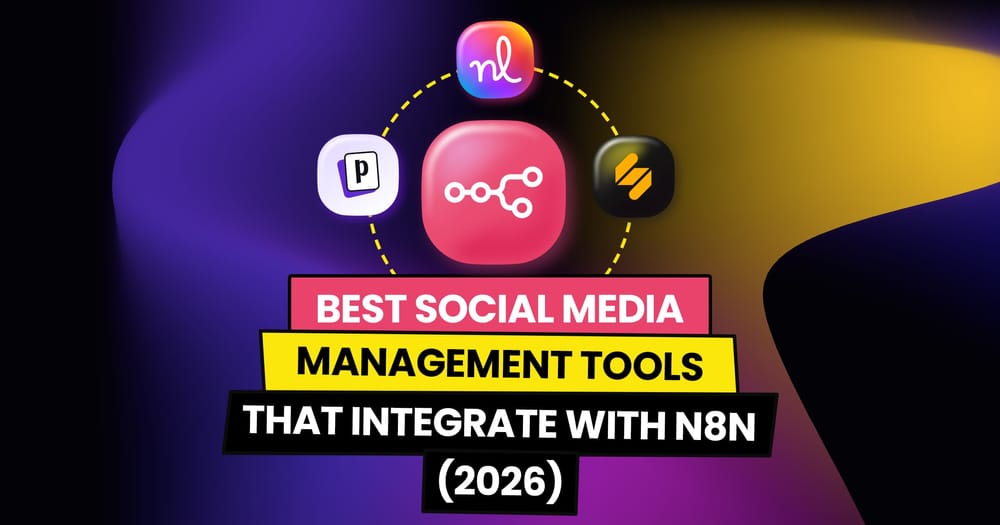Some brands win by hopping on viral memes the moment they hit your feed. Others win by rolling out polished campaigns planned months in advance. Both approaches work, but they play by different rules.
Reactive posting thrives on speed. It’s about riding cultural waves, from trending hashtags to viral TikTok formats. Proactive posting, on the other hand, is about strategy, content that’s carefully planned, scheduled, and designed to stand the test of time.
And in 2025, the balance between the two has never been more important. Algorithms reward immediacy, with platforms like TikTok and X pushing real-time relevance higher in feeds. But audiences still trust consistency, regular posting, evergreen storytelling, and campaigns that reinforce a brand’s voice.
The question isn’t reactive vs. proactive. It’s how to use both without losing credibility or missing opportunities.
What is Reactive Posting?
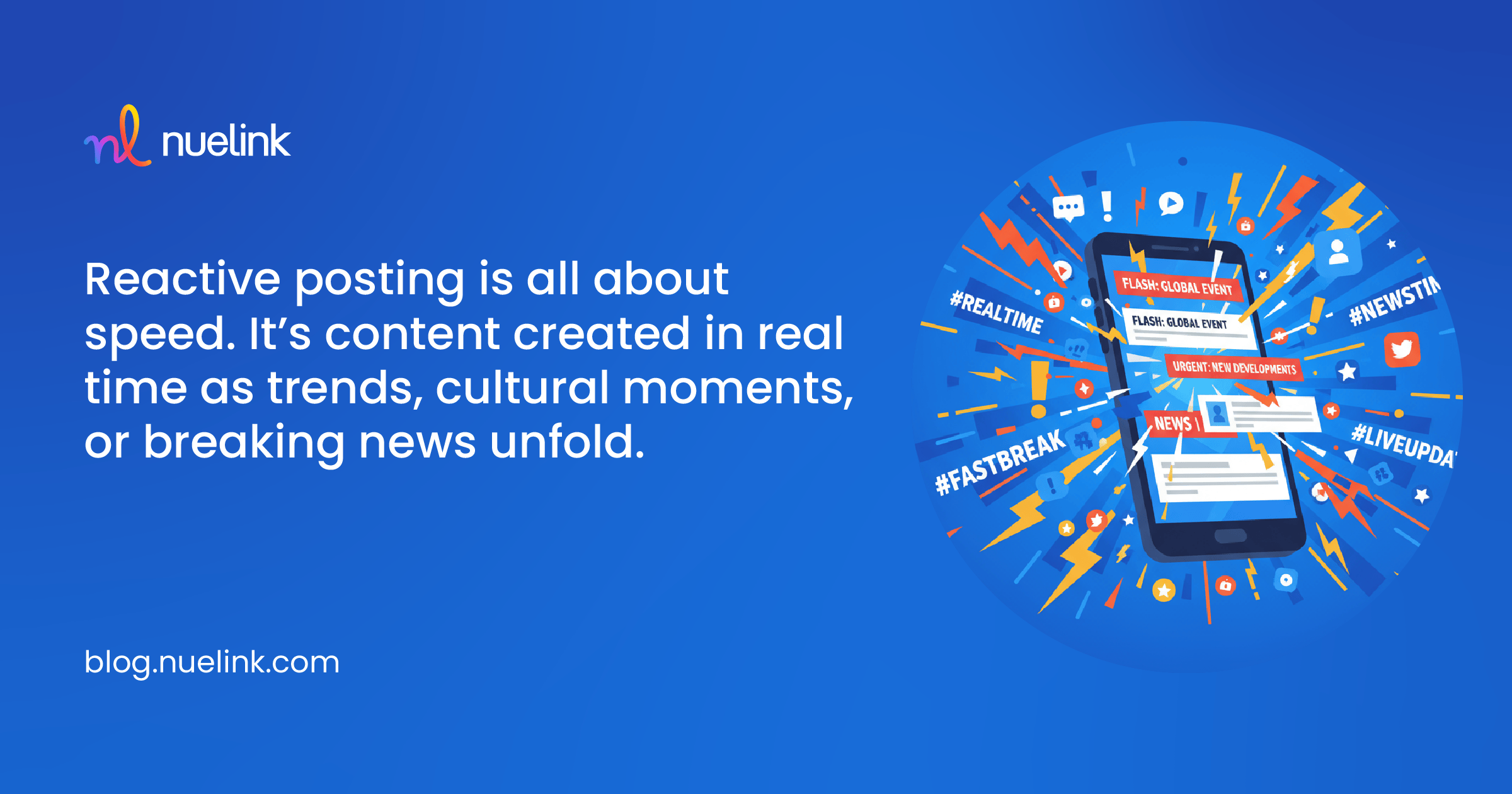
Reactive posting is all about speed. It’s content created in real time as trends, cultural moments, memes, or breaking news unfold. When it works, reactive posting feels fresh, timely, and human. It tells audiences. Think of it as a brand’s ability to join the conversation while everyone’s still talking about it. Like:
- A fast-food chain dropping a meme about the latest viral celebrity moment.
- A sports brand tweeting seconds after a game-winning shot.
- A company riding trending TikTok audio before it fades into obscurity.
Benefits of Reactive Posting
- Quick visibility: Trending topics often spike algorithmic reach, helping brands show up in feeds beyond their usual audience.
- Cultural relevance: Jumping into conversations makes a brand feel current and relatable.
- Humanized voice: A witty, timely post can cut through corporate distance and feel more like a friend chiming in.
Risks of Reactive Posting
- Short shelf life: Most trends burn out in days, sometimes hours. A reactive post that’s late to the party is worse than silence. Check out this blog post for more on this.
- Tone-deaf timing: Posting during sensitive cultural moments can turn a “joke” into a PR headache.
- Backlash potential: Speed sometimes sacrifices strategy, and one misstep can affect trust fast.
Reactive posts can generate higher engagement, but they also carry the highest risk of misfires if timing or tone misses the mark.
What is Proactive Posting?
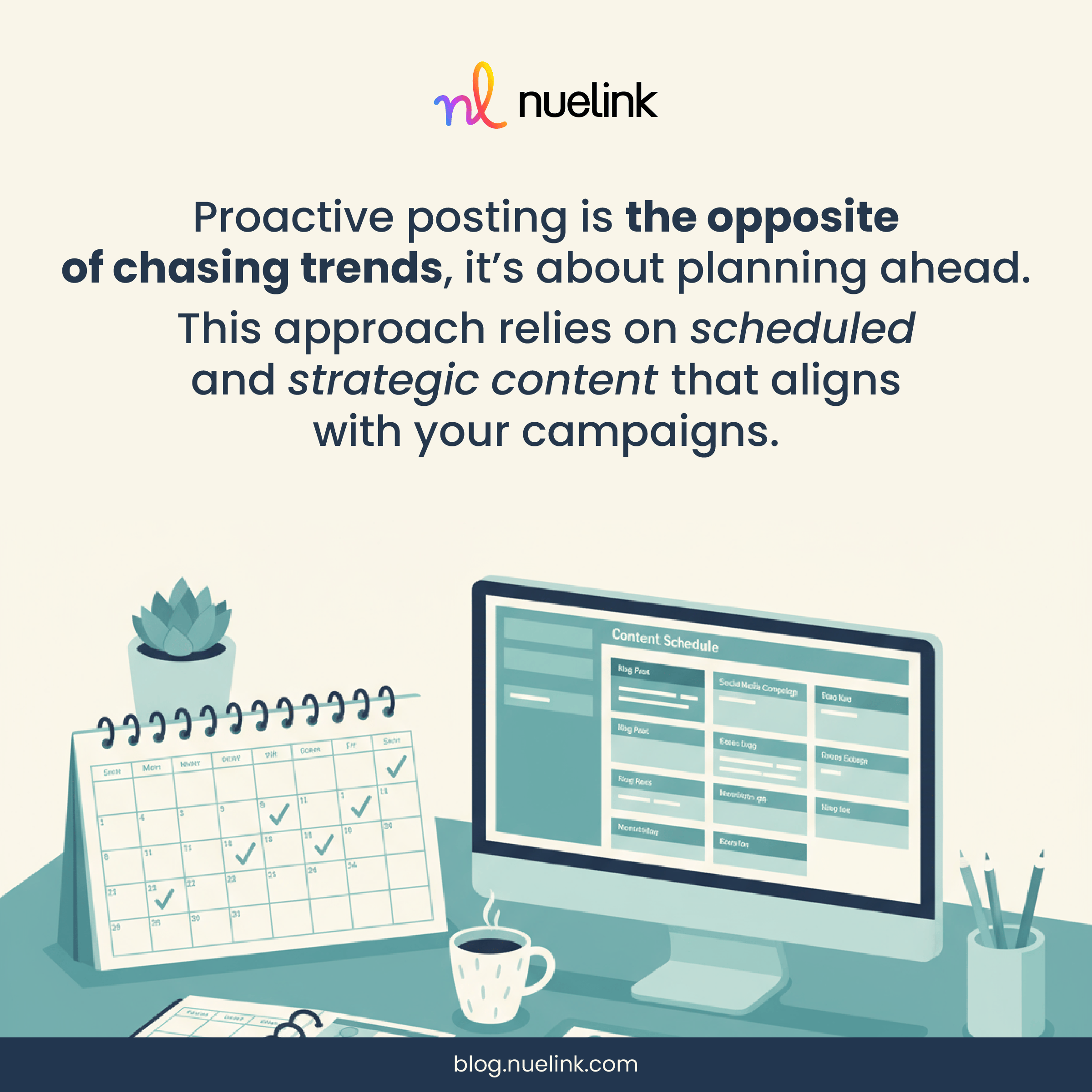
Proactive posting is the opposite of chasing trends, it’s about planning ahead. This approach relies on scheduled, strategic content that aligns with campaigns, product launches, or evergreen themes that stay relevant over time. For example:
- A brand rolling out a campaign with carefully designed graphics and captions.
- An educational carousel on LinkedIn explaining industry best practices.
- A YouTube how-to video that audiences can revisit months or even years later.
Proactive posting builds a foundation. It’s not designed to go viral overnight, but to reinforce a brand’s authority, consistency, and long-term relationship with its audience.
Benefits of Proactive Posting
- Consistency: Regular, predictable posting keeps a brand present in feeds and top of mind.
- Clear messaging: Planned content ensures alignment with business goals, campaigns, and brand voice.
- Long-term trust: Evergreen resources like tutorials or thought leadership build authority and trust over time.
Risks of Proactive Posting
- Lack of spontaneity: Overly polished content can feel distant or overly corporate.
- Missed opportunities: Brands focused only on scheduled content risk being silent during big cultural moments.
Research backs this up. Consistent posting schedules double follower growth rate, and evergreen content often drives traffic long after its initial release. But without flexibility, proactive posting can feel predictable, safe, but forgettable.
Comparing the Two: Strengths and Weaknesses
Reactive and proactive posting aren’t rivals, they’re two sides of the same coin. Each brings unique strengths, and each comes with trade-offs. The real power comes from knowing when to lean on one versus the other.
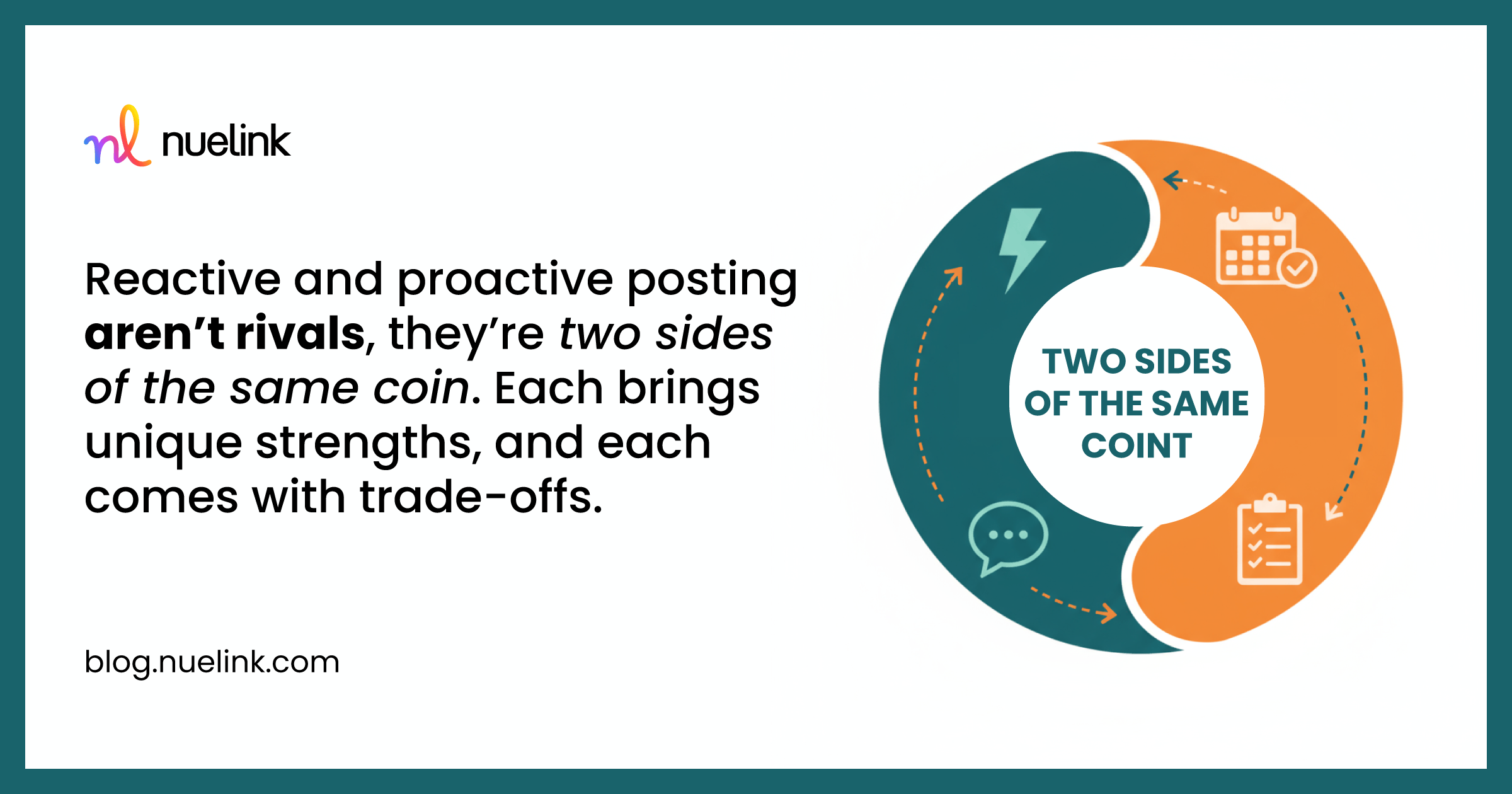
Engagement
Reactive posts often spark immediate spikes in likes, comments, and shares. They tap into what people are already talking about, which is why a clever tweet during a viral moment can outperform weeks of planned content. Proactive posts, on the other hand, build steady engagement over time.
A well-crafted tutorial or thought leadership piece may not explode overnight, but it generates reliable traction month after month.
Longevity
Reactive content tends to fade as quickly as the trend that inspired it. What’s funny today may be irrelevant, or even cringy, tomorrow. Proactive content has a longer shelf life, evergreen videos, blog posts, or carousels continue driving visibility and value long after they’re published.
Risk vs. Reward
Reactive posting is high-risk, high-reward. A perfectly timed joke can boost brand visibility, but a misstep can trigger backlash. Proactive posting is safer and more controlled, but it rarely delivers the sudden bursts of attention that reactive posts can achieve.
Platform Fit
Not all platforms reward content the same way. X thrives on reactive content, its fast-paced feed makes timeliness essential. LinkedIn and YouTube lean heavily toward proactive, strategic content where audiences expect depth, expertise, and consistency.
A 2024 study showed that brands using primarily reactive strategies saw higher short-term engagement, while those with stronger proactive strategies experienced more consistent growth over the long run. The best results came from those who balanced both.
The Hybrid Approach: Blending Reactive and Proactive for 2025
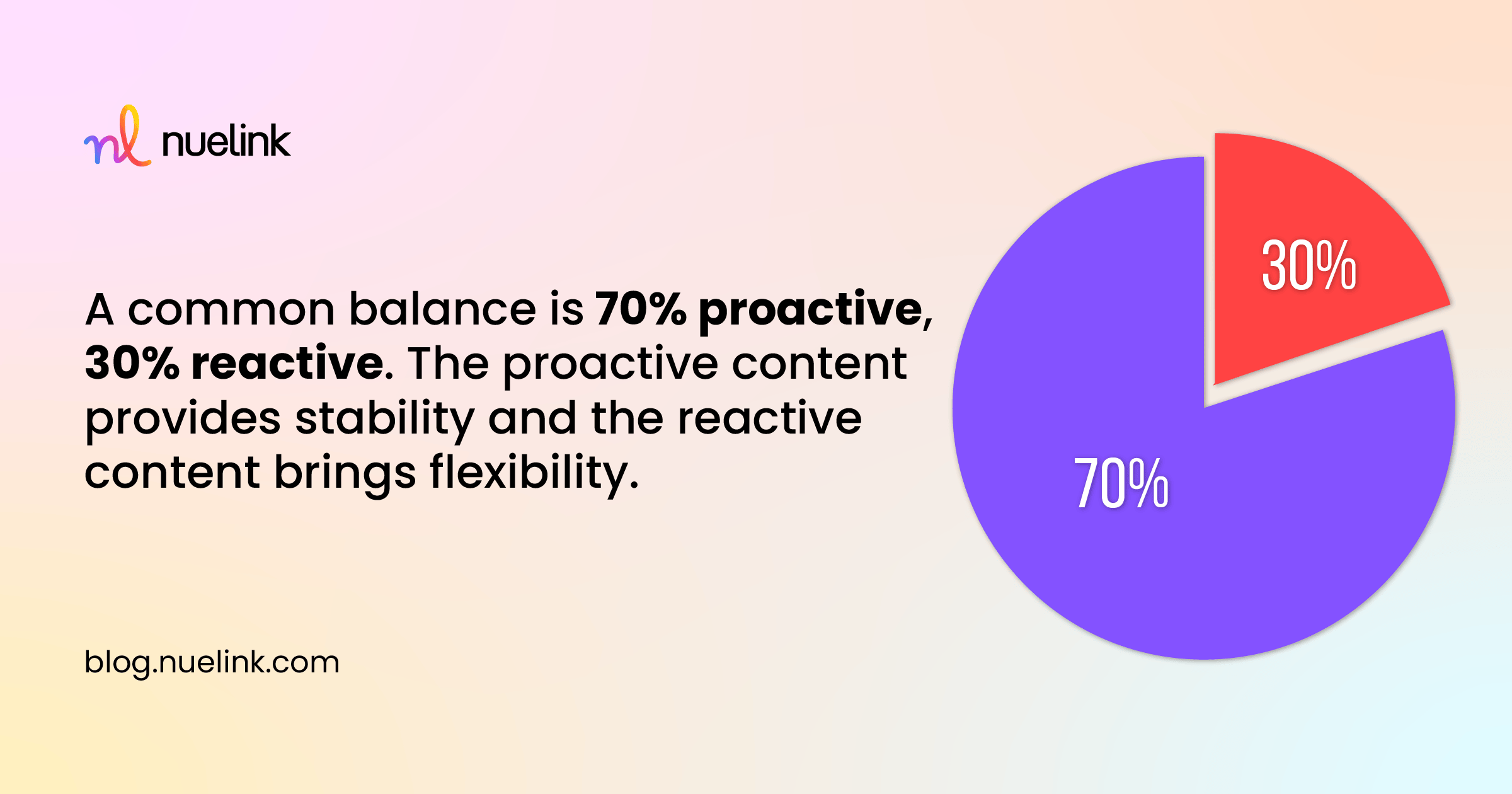
The most successful brands in 2025 aren’t choosing between reactive and proactive posting, they’re combining them. A hybrid approach allows brands to stay consistent while still having the agility to join cultural conversations when it matters.
The Framework
A common balance is 70% proactive, 30% reactive. The proactive content provides stability: product launches, evergreen guides, campaign storytelling. The reactive content brings flexibility: trending memes, cultural moments, and timely commentary. Together, they create a mix that feels both reliable and relevant.
Tools and Strategies for Blending
- Social media management tools: These ensure proactive content is mapped out in advance, keeping campaigns on track and avoiding last-minute scrambles. They also make it easy to publish reactive content quickly across multiple channels. At Nuelink, we support both approaches seamlessly.
- Social listening tools: Monitoring platforms like TikTok, X, and Instagram for trending conversations helps brands identify when to go reactive.
- Approval processes: Quick internal workflows make it possible to post in real time without risking tone-deaf or off-brand content.
Brands Leading the Way
- Wendy’s is known for its sharp reactive voice on X, but it balances the humor with proactive campaigns that reinforce its core identity.
Pookie looking absolutely fire pic.twitter.com/zx9zjINi7m
— Wendy’s (@Wendys) January 30, 2024
- Spotify thrives with a hybrid model. Proactive campaigns like “Spotify Wrapped” dominate every December, while reactive posts tie into trending music and pop culture throughout the year. In this case, "The Summer I Turned Pretty" hype train.
Team Conrad. Team Jeremiah. Or… Team endless playlists? "The Summer I Turned Pretty" has fans turning love triangles into the soundtrack of their summer. pic.twitter.com/9IXaMTwhs4
— Spotify News (@SpotifyNews) September 16, 2025
- Nike leans heavily proactive, but when cultural moments align with its brand values, it reacts quickly, strengthening both its voice and credibility.
Why risk it? Because you can. #JustDoIt pic.twitter.com/cnCidIQjdB
— Nike (@Nike) September 4, 2025
Audiences want immediacy, but they also want consistency. Brands that master both create content ecosystems that are timely without being scattered, and consistent without being stale.
The key takeaway here is don’t chase every trend, and don’t rely solely on planned content. Instead, plan for consistency, but stay agile enough to pivot when the right moment arises.

